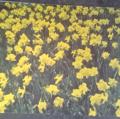Stephanie Jane recenzis Surrender to Night de Georg Trakl
Amazing poetry collection
5 steloj
There's nothing quite like reading an amazing poetry collection to help me really see and appreciate the world around me. In Surrender To Night, Trakl's gorgeous observations of village life and the natural world did just that and I was blown away both that he was so young to have written such vivid poetry and that he isn't far more widely known. I don't think I had even seen his name prior to spotting this new Pushkin collection on NetGalley yet the poems themselves are over a century old! Despite their age, I found no problem in envisaging the imagery Trakl presents, yet I did experience a strange sense of not quite grasping his meaning. It's hard to describe - perhaps almost a magickal veil? I felt, as read many of these poems, that I was absolutely there in the moment yet as I finished each one and thought back …
There's nothing quite like reading an amazing poetry collection to help me really see and appreciate the world around me. In Surrender To Night, Trakl's gorgeous observations of village life and the natural world did just that and I was blown away both that he was so young to have written such vivid poetry and that he isn't far more widely known. I don't think I had even seen his name prior to spotting this new Pushkin collection on NetGalley yet the poems themselves are over a century old! Despite their age, I found no problem in envisaging the imagery Trakl presents, yet I did experience a strange sense of not quite grasping his meaning. It's hard to describe - perhaps almost a magickal veil? I felt, as read many of these poems, that I was absolutely there in the moment yet as I finished each one and thought back over it, something of that clarity evaporated. Does that make sense?
I learned from the informative introductory essays that Trakl himself was a disturbed soul who struggled with mental illness for much of his short life. His translator for this book, Will Stone, has arranged most of the poems in a chronological order so I could appreciate the darkening of repeated themes over the years. Colour is important to Trakl and the blues and browns of his earlier works tends to be replaced by reds, blacks and bone whites later on. Deer and birds are common metaphors as are trees, both for their appearance and their sound, and the Föhn wind which I recognised from Where The Wild Winds Are and remembered it traditionally is said to affect mental stability. I noticed mentions of wine were usurped by the idea of being 'drunk on poppy' as Trakl's opium addiction took a stronger hold on him, and his uses of more Christian imagery including angels and ruined churches.
I cannot say with any confidence that I actually completely understood Trakl's poetry, especially not in the case of the darkest later works. However I could feel his sense of isolation and the idea of an outsider always looking in to a community of which he cannot be part. I am very grateful to Pushkin Press for having made this breathtakingly original collection available again to readers and to Will Stone for his sympathetic translations.

